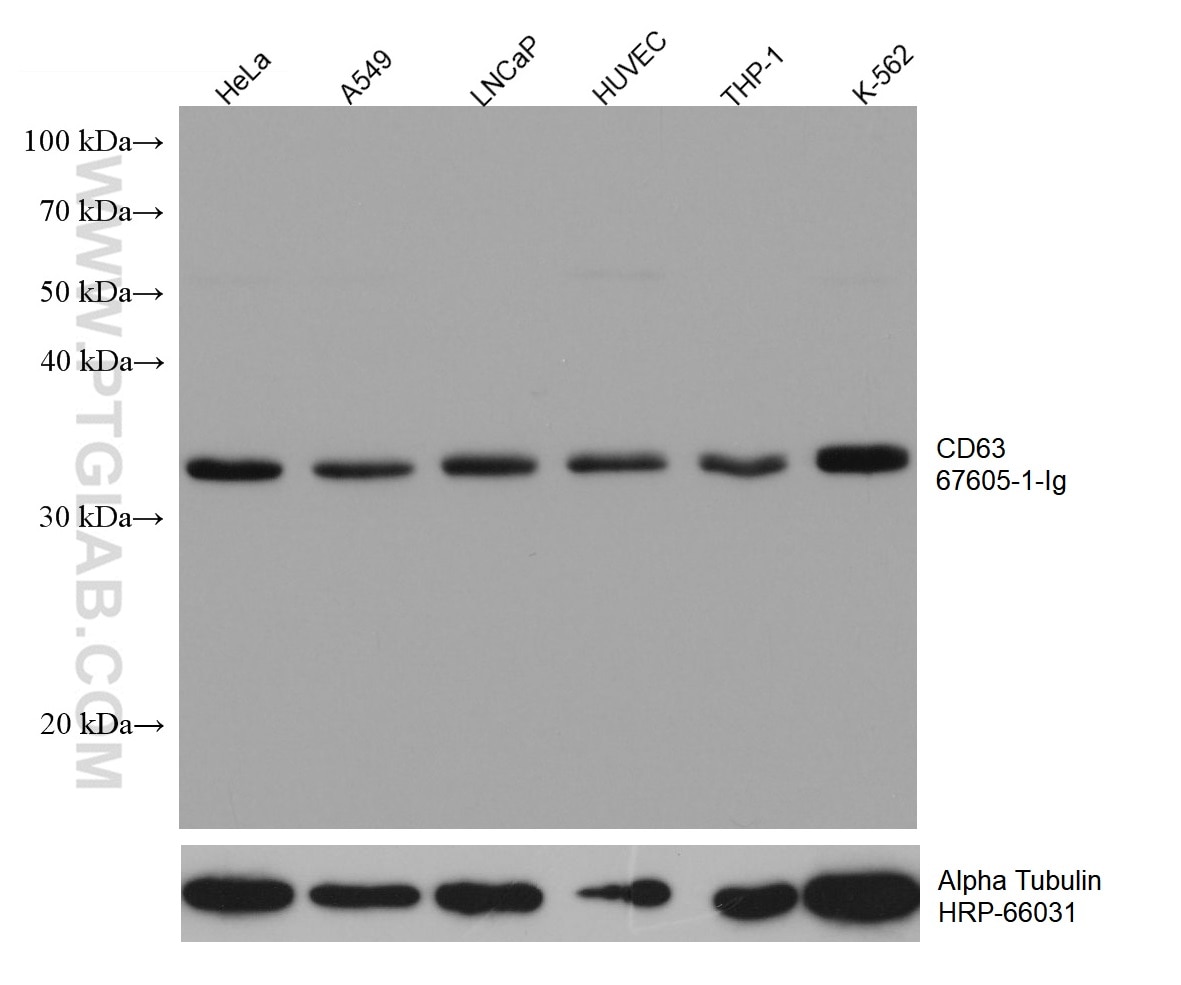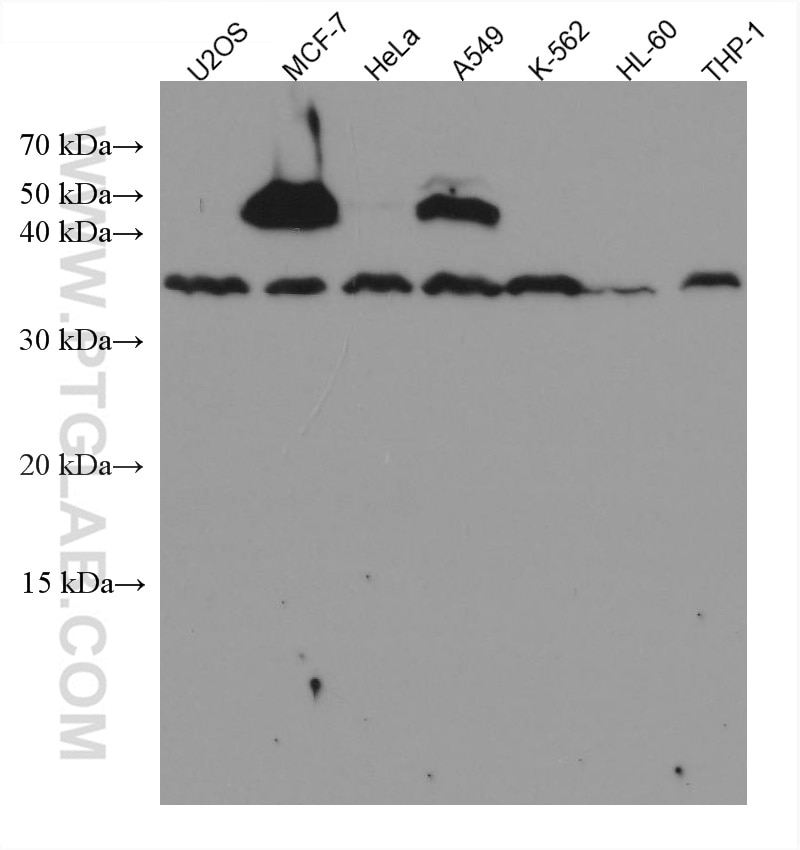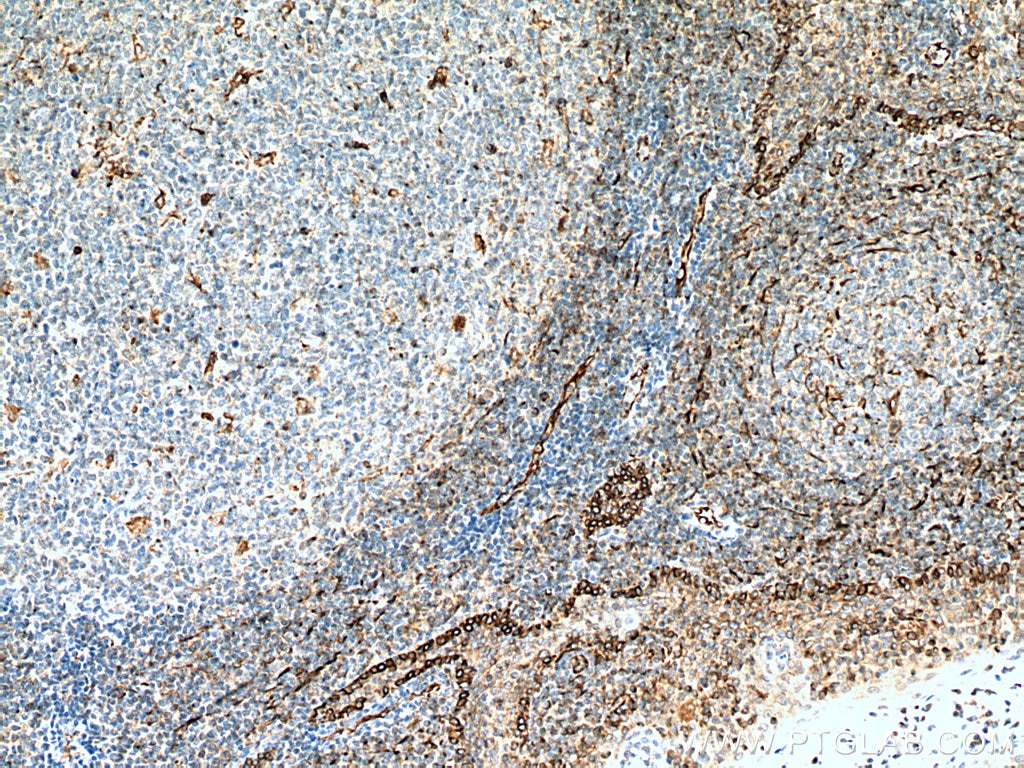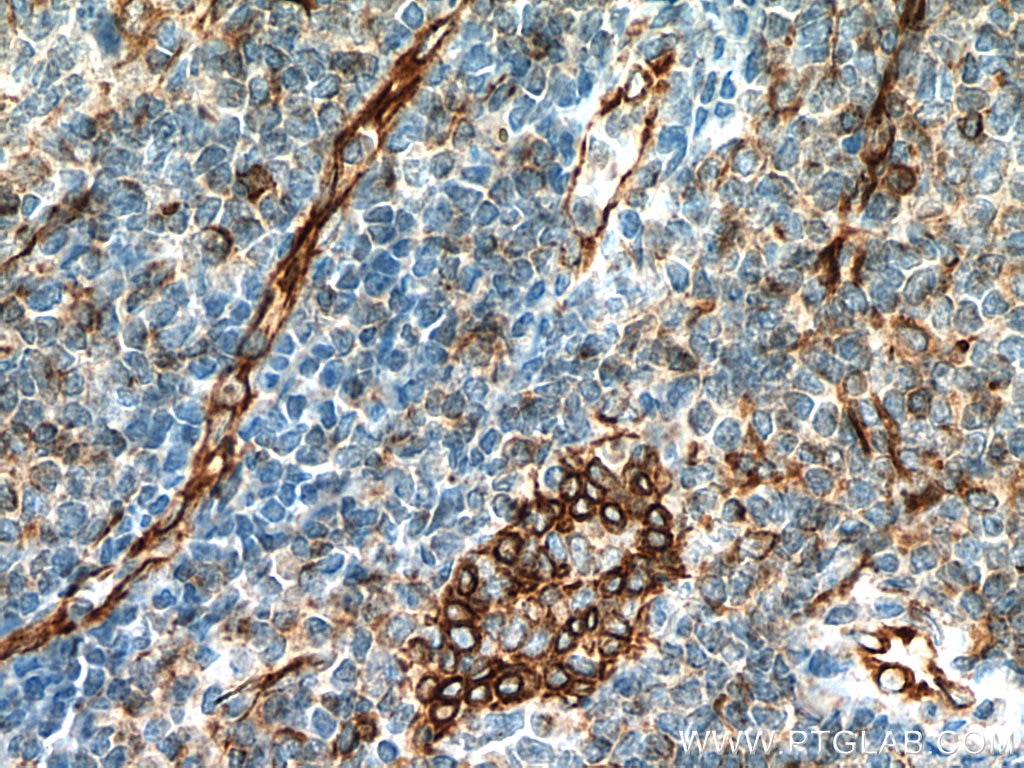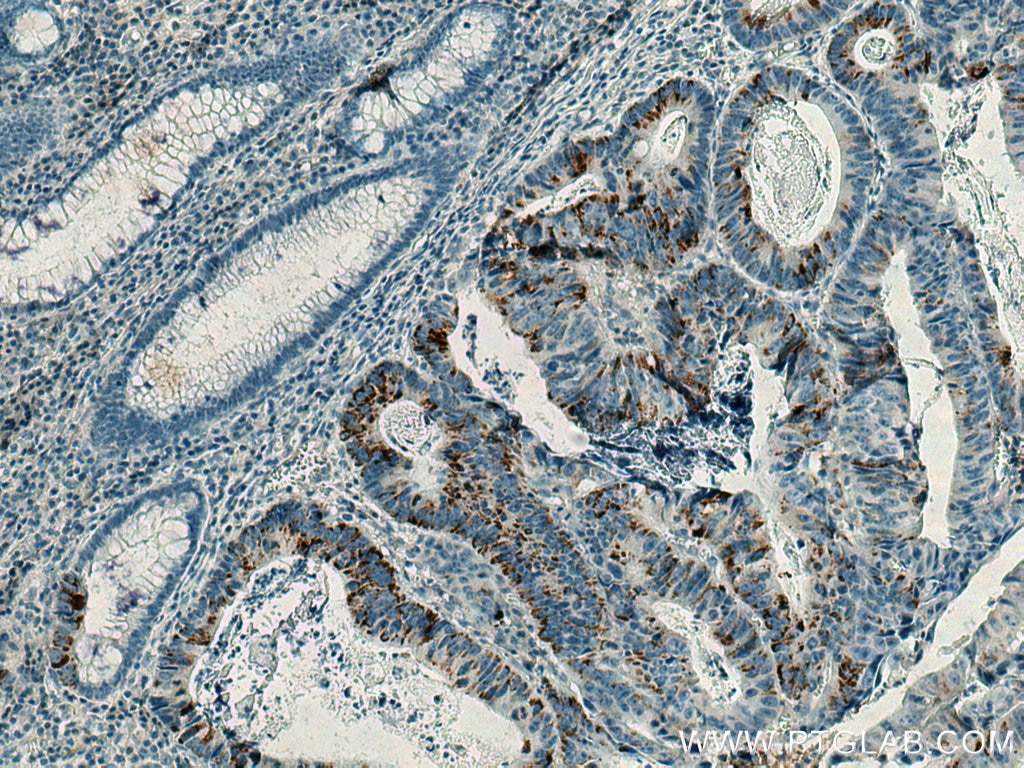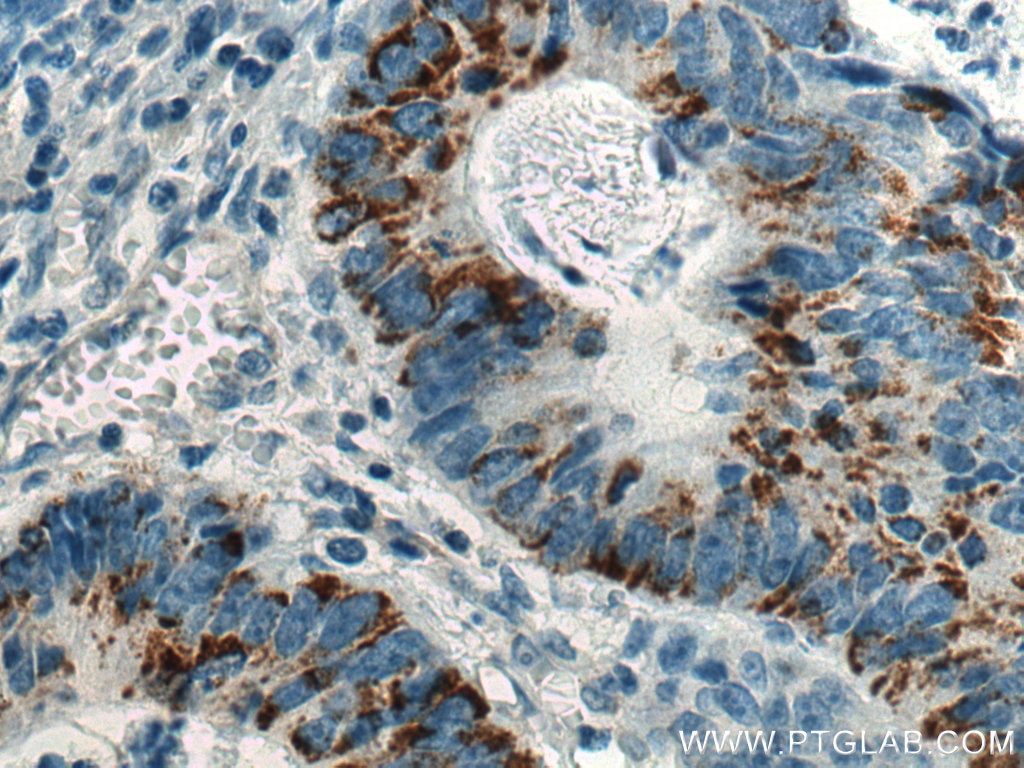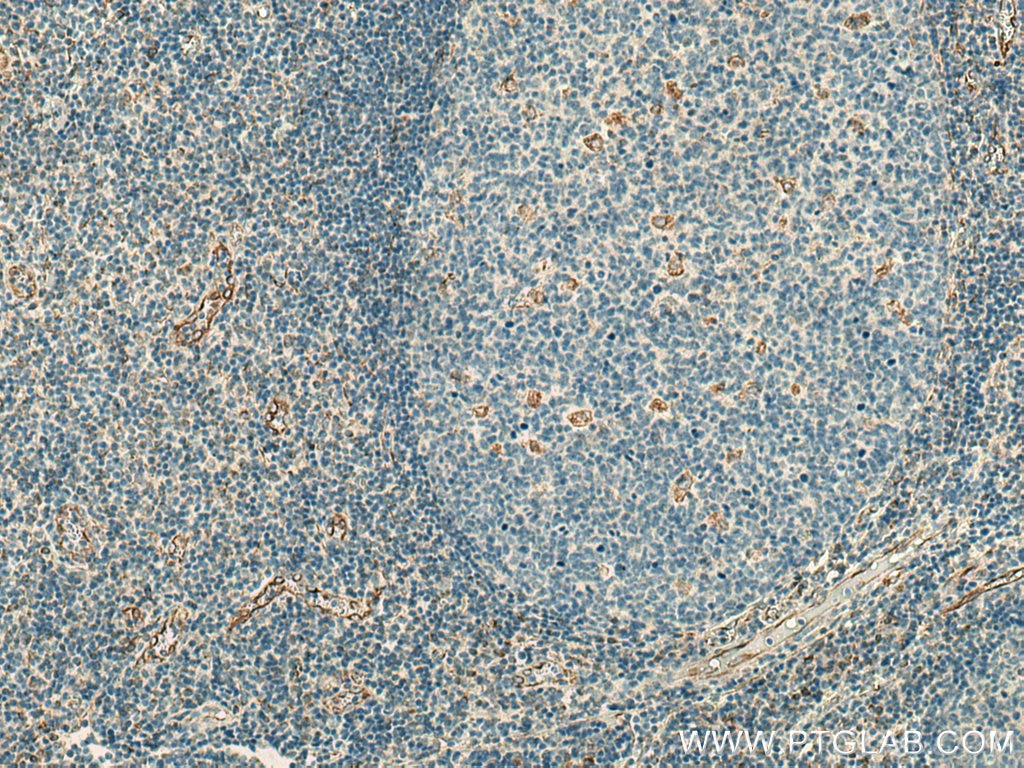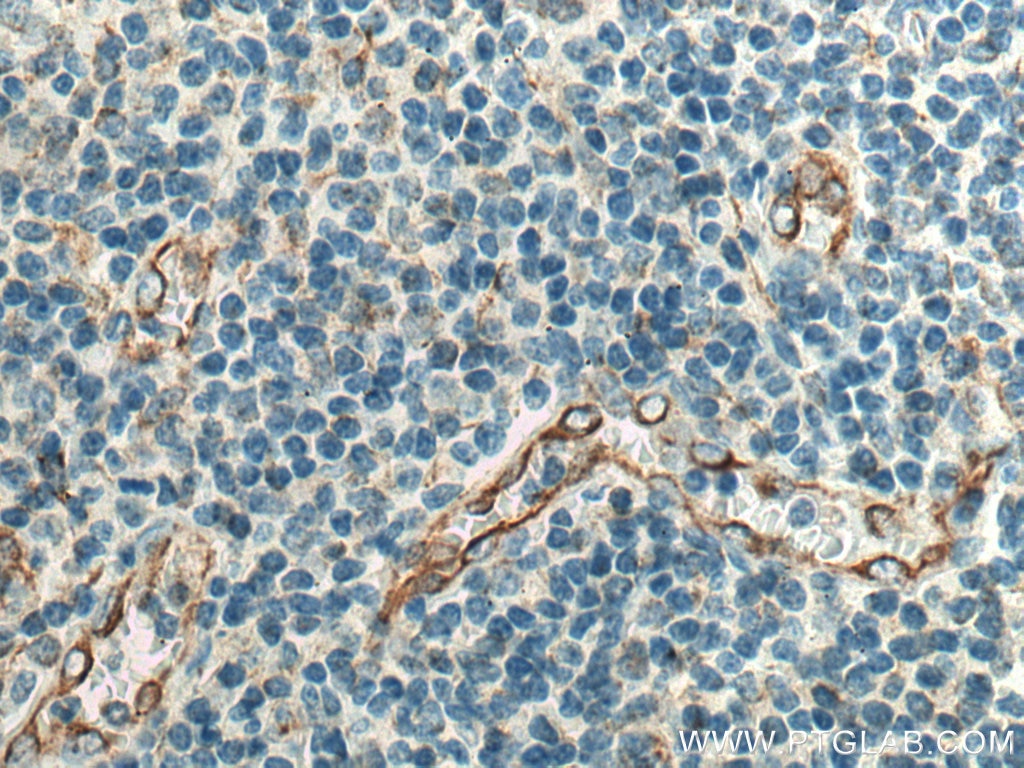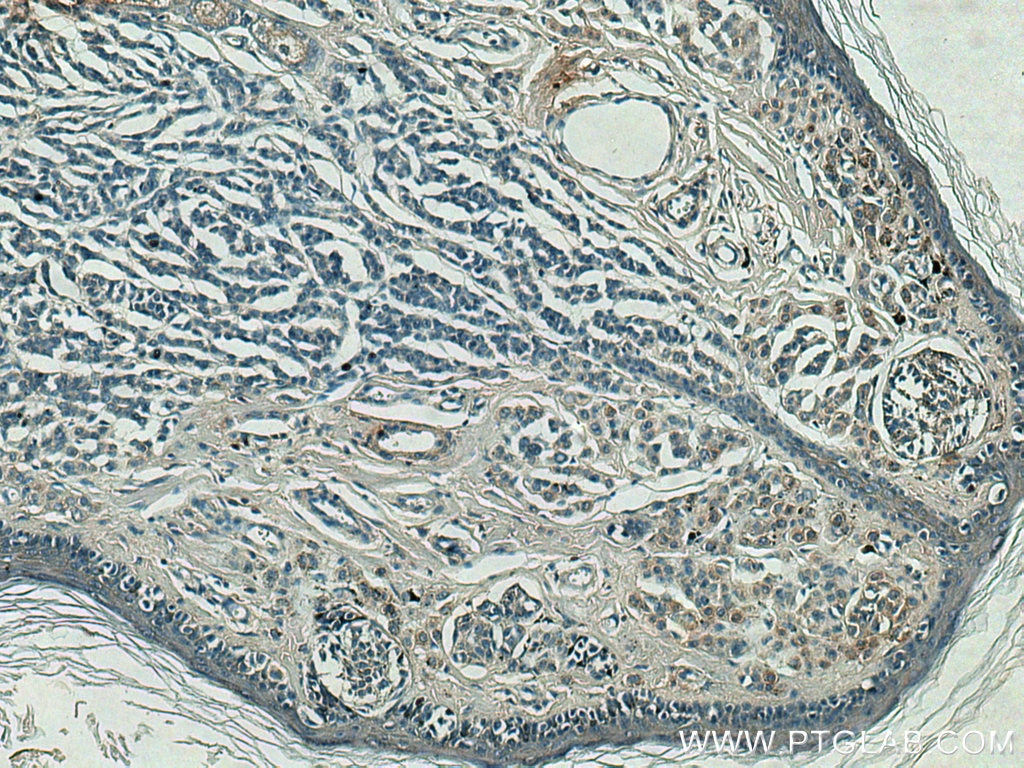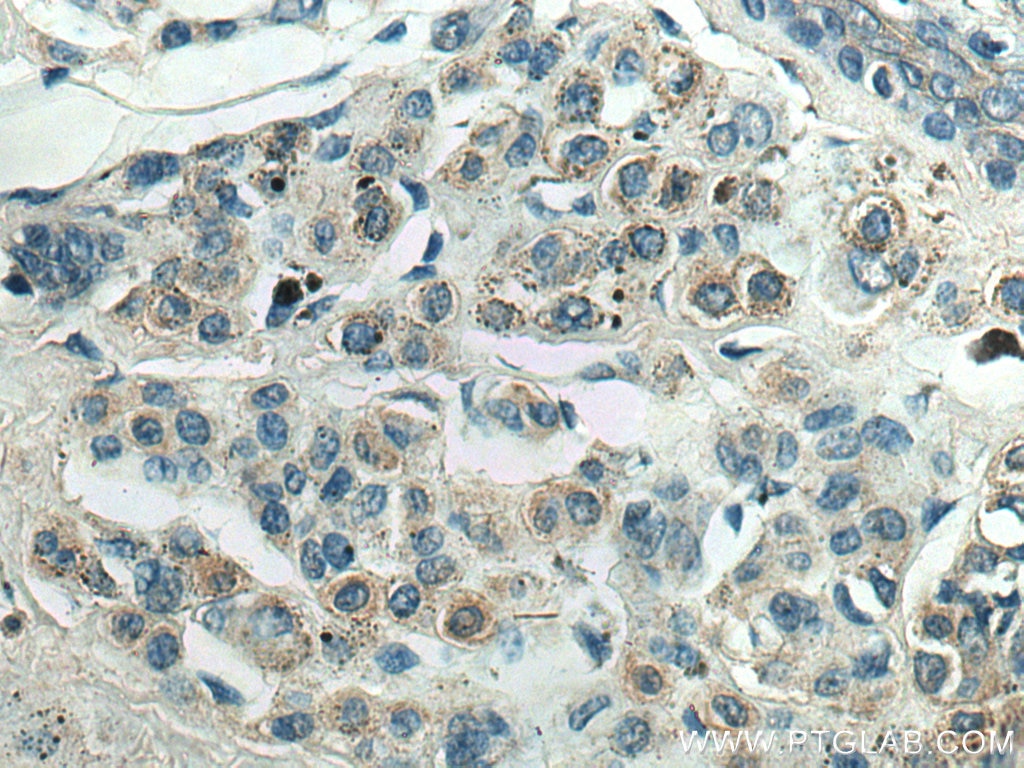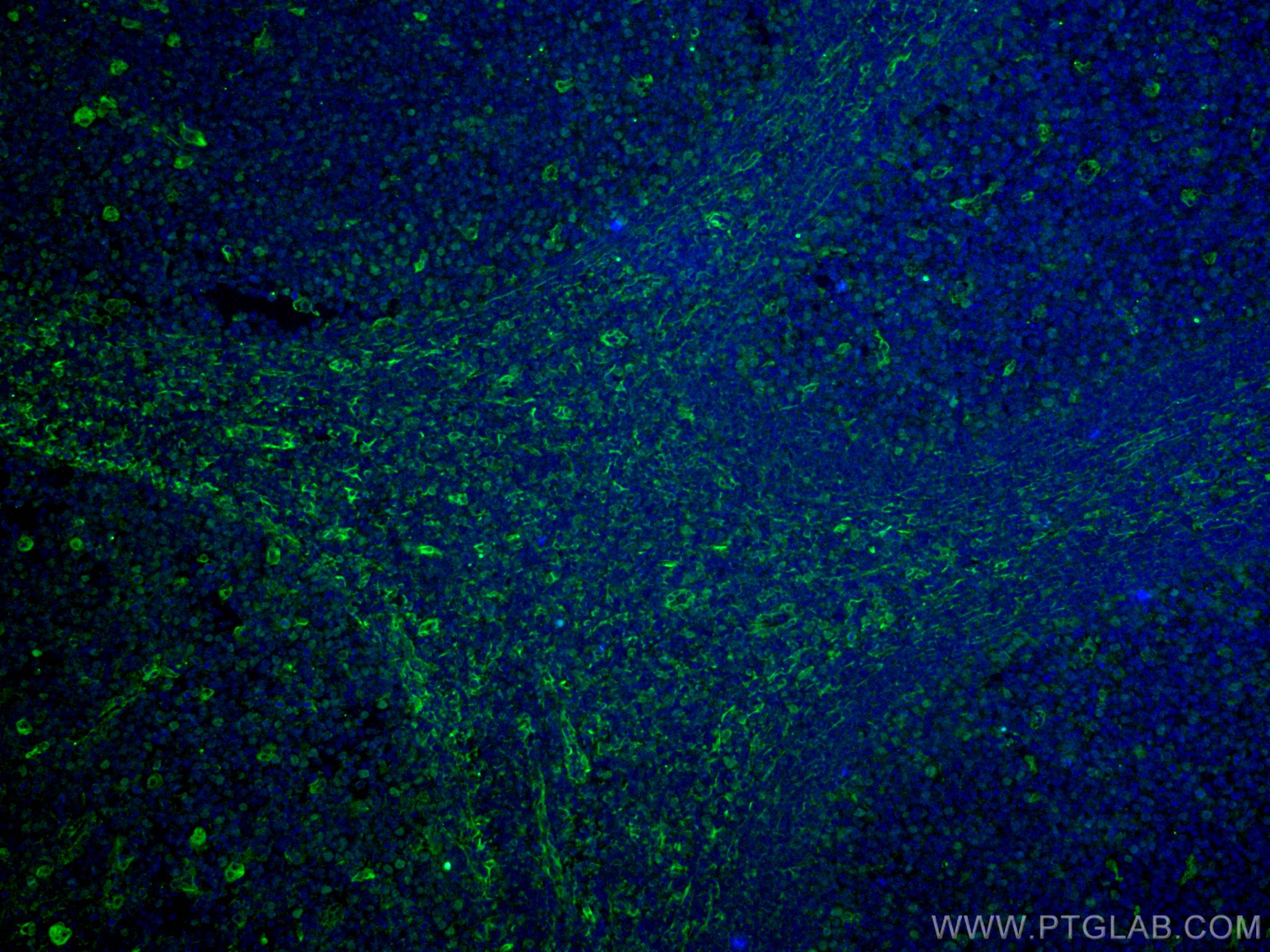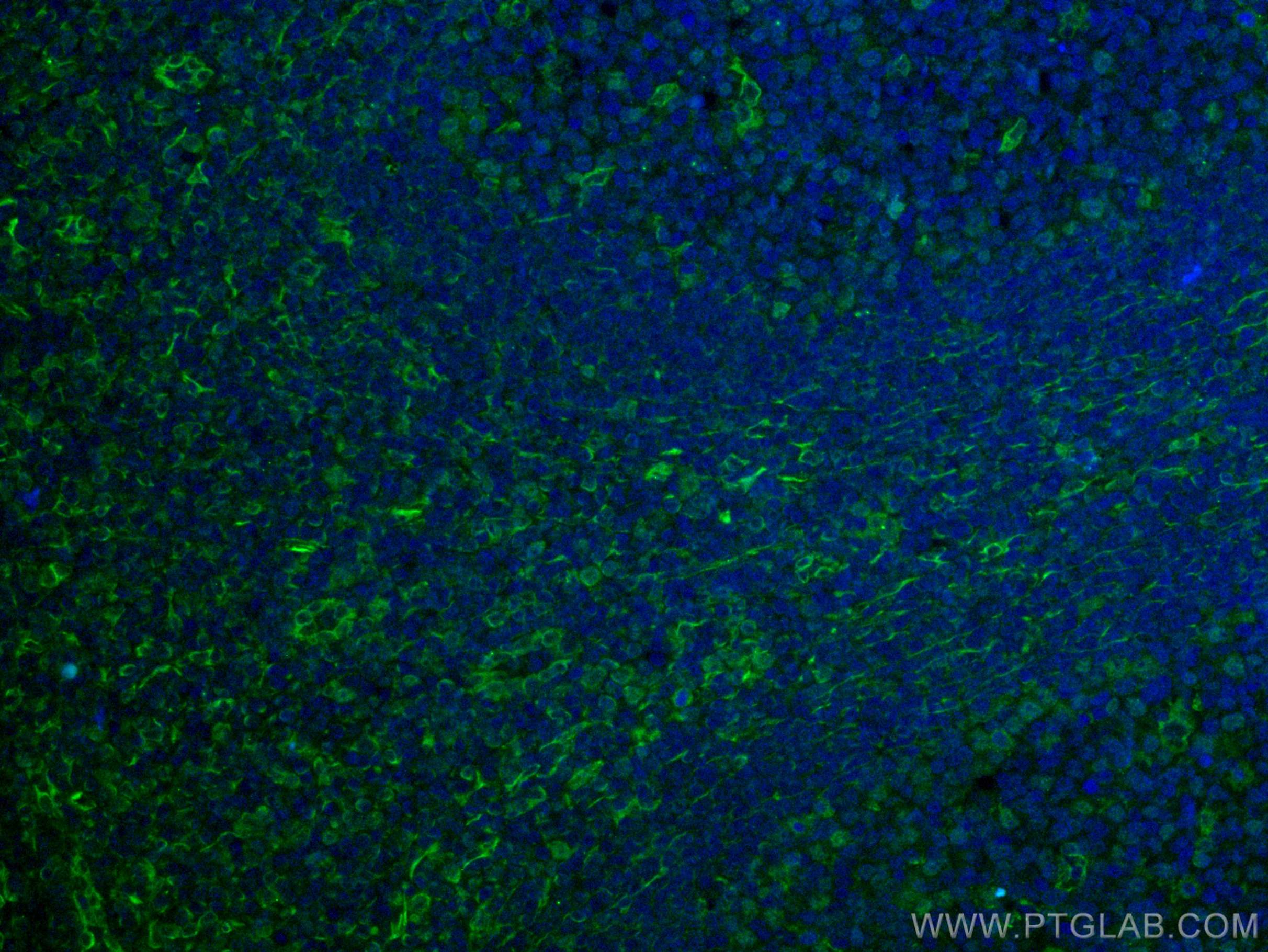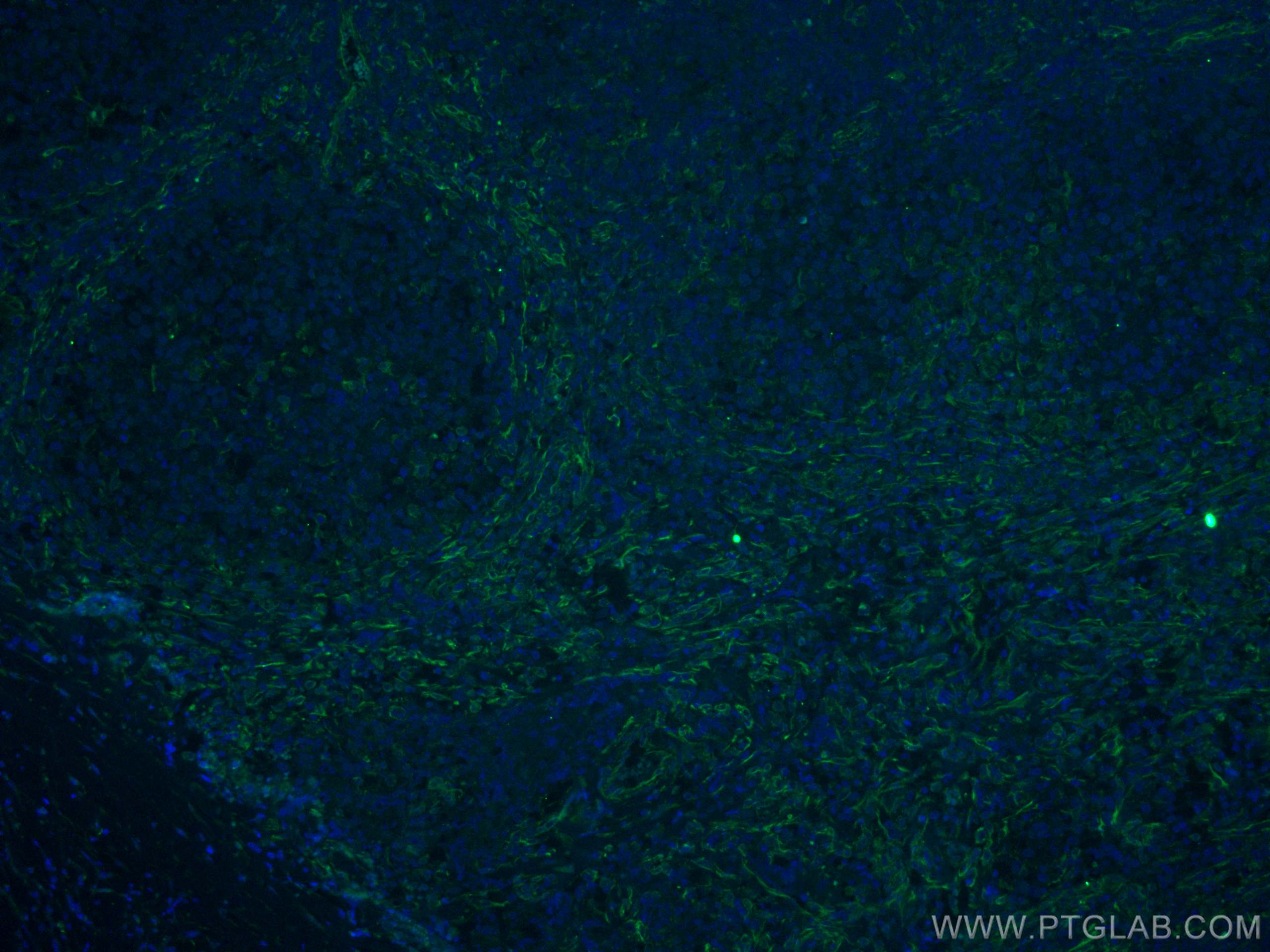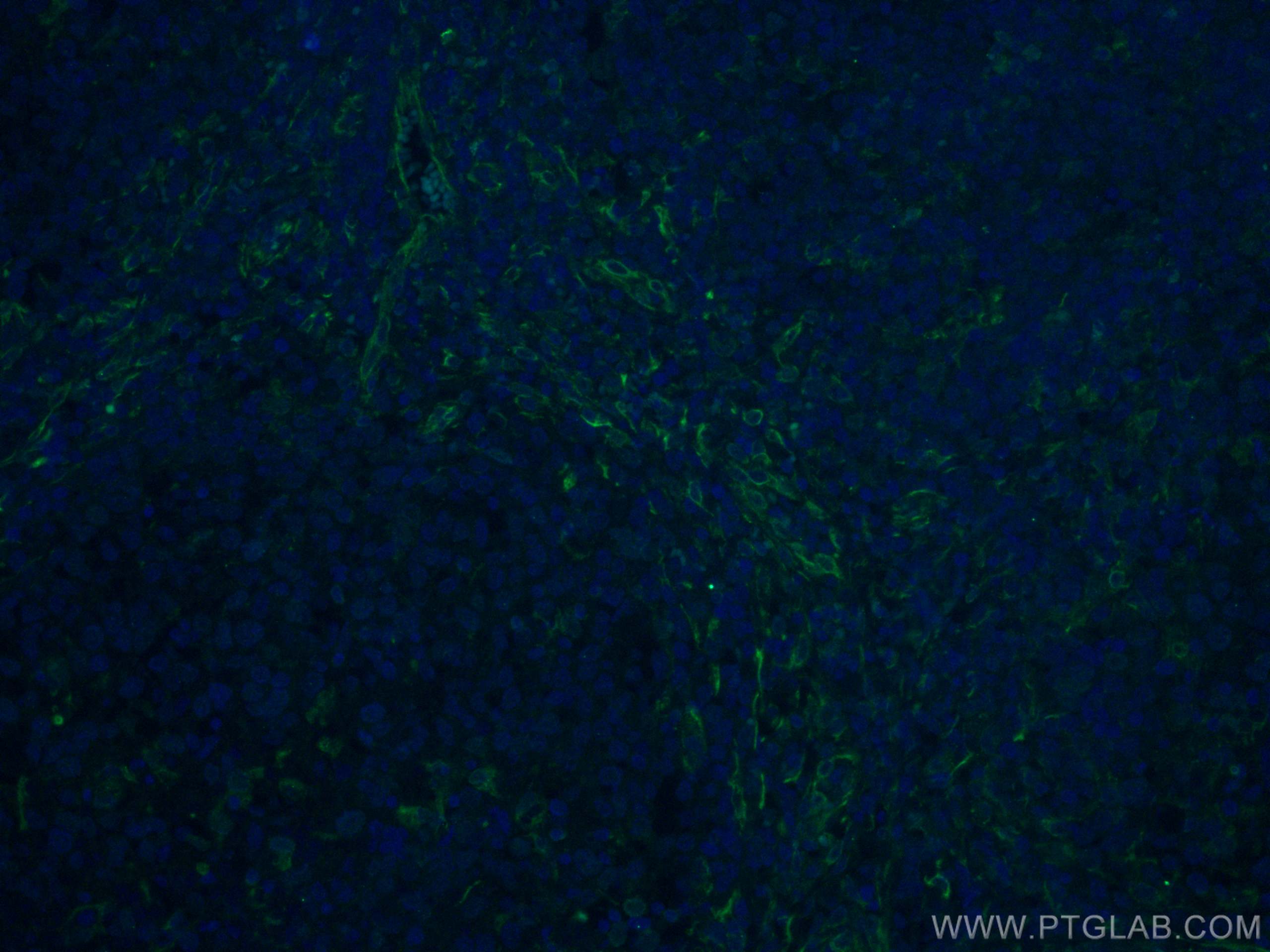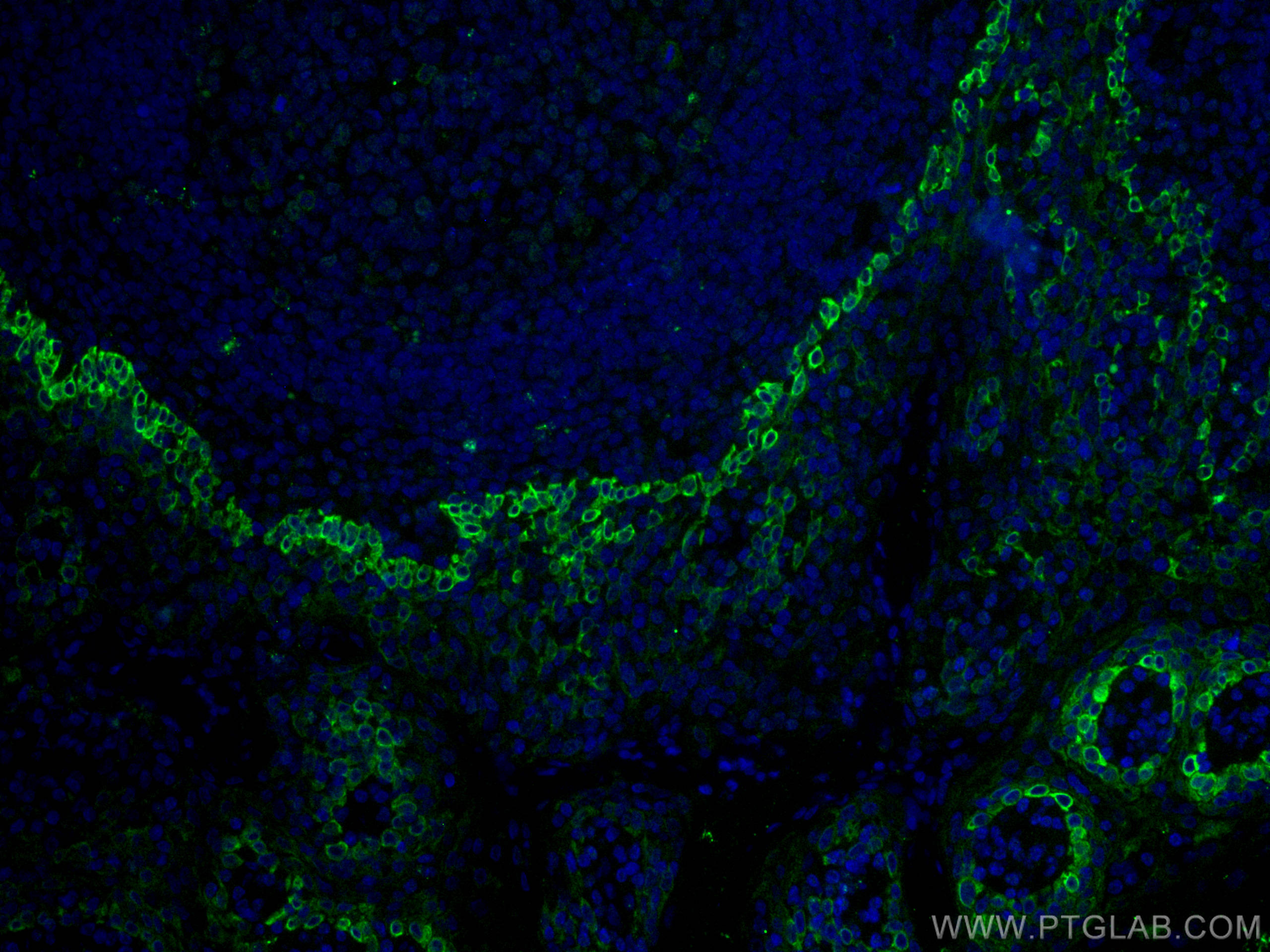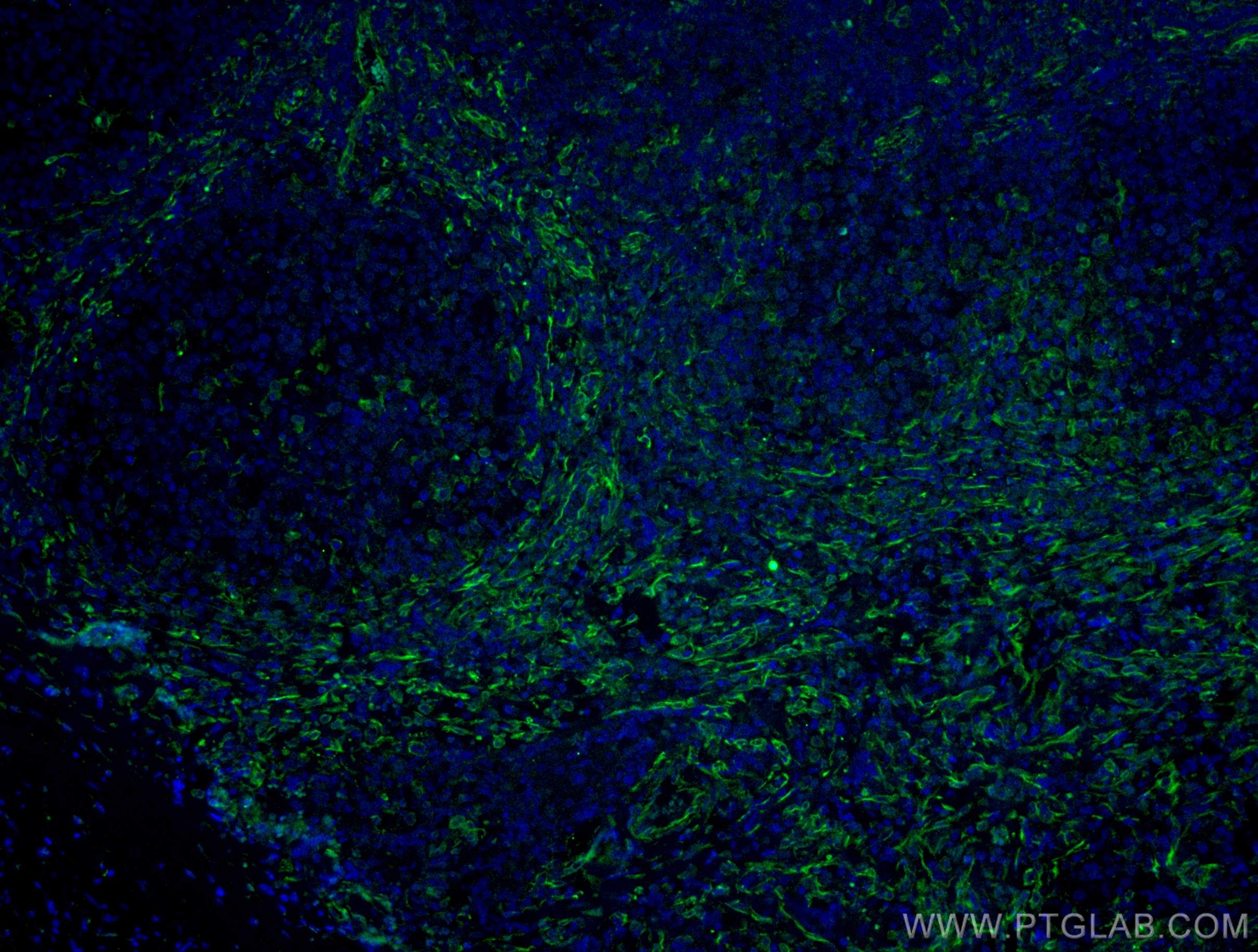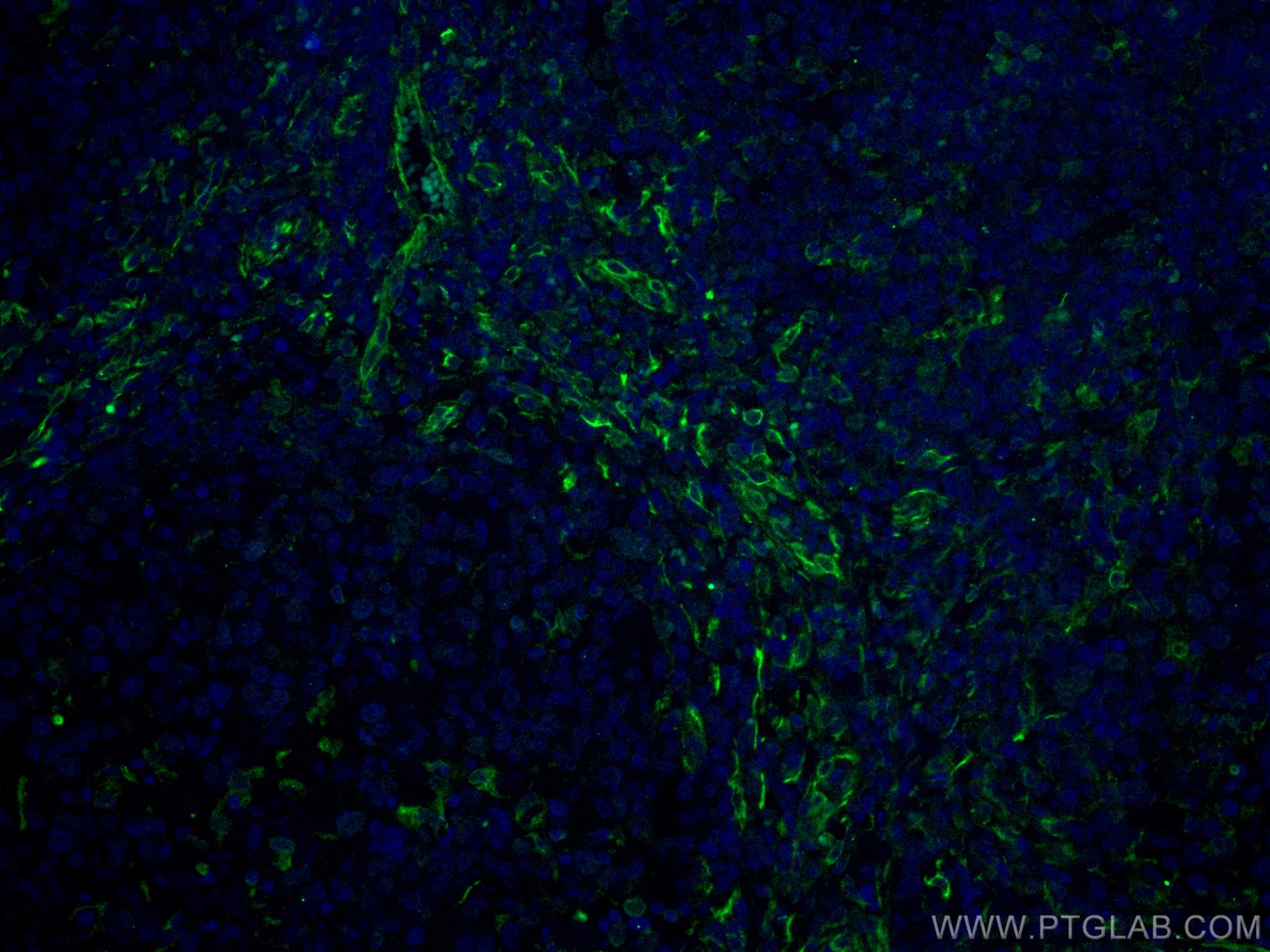Tested Applications
| Positive WB detected in | HeLa cells, U2OS cells, MCF-7 cells, A549 cells, K-562 cells, HL-60, THP-1 cells, LNCaP cells, HUVEC cells |
| Positive IHC detected in | human tonsillitis tissue, human malignant melanoma tissue, human colon cancer tissue Note: suggested antigen retrieval with TE buffer pH 9.0; (*) Alternatively, antigen retrieval may be performed with citrate buffer pH 6.0 |
| Positive IF-P detected in | human tonsillitis tissue, human malignant melanoma tissue, human lymphoma tissue |
Recommended dilution
| Application | Dilution |
|---|---|
| Western Blot (WB) | WB : 1:5000-1:10000 |
| Immunohistochemistry (IHC) | IHC : 1:350-1:1400 |
| Immunofluorescence (IF)-P | IF-P : 1:200-1:800 |
| It is recommended that this reagent should be titrated in each testing system to obtain optimal results. | |
| Sample-dependent, Check data in validation data gallery. | |
Published Applications
| WB | See 92 publications below |
| IF | See 5 publications below |
Product Information
67605-1-Ig targets CD63 in WB, IHC, IF-P, ELISA applications and shows reactivity with human samples.
| Tested Reactivity | human |
| Cited Reactivity | human, rat, goat |
| Host / Isotype | Mouse / IgG1 |
| Class | Monoclonal |
| Type | Antibody |
| Immunogen |
CatNo: Ag19690 Product name: Recombinant human CD63 protein Source: e coli.-derived, PET28a Tag: 6*His Domain: 104-209 aa of BC002349 Sequence: GYVFRDKVMSEFNNNFRQQMENYPKNNHTASILDRMQADFKCCGAANYTDWEKIPSMSKNRVPDSCCINVTVGCGINFNEKAIHKEGCVEKIGGWLRKNVLVVAAA Predict reactive species |
| Full Name | CD63 molecule |
| Calculated Molecular Weight | 26 kDa |
| Observed Molecular Weight | 35 kDa |
| GenBank Accession Number | BC002349 |
| Gene Symbol | CD63 |
| Gene ID (NCBI) | 967 |
| RRID | AB_2882811 |
| Conjugate | Unconjugated |
| Form | Liquid |
| Purification Method | Protein G purification |
| UNIPROT ID | P08962 |
| Storage Buffer | PBS with 0.02% sodium azide and 50% glycerol, pH 7.3. |
| Storage Conditions | Store at -20°C. Stable for one year after shipment. Aliquoting is unnecessary for -20oC storage. 20ul sizes contain 0.1% BSA. |
Background Information
CD63 is a 30-60 kDa lysosomal membrane protein that belongs to the tetraspanin family. This protein plays many important roles in immuno-physiological functions. It mediate signal transduction events that play a role in the regulation of cell development, activation and motility. CD63 is expressed on activated platelets, thus it may function as a blood platelet activation marker. CD63 is a lysosomal membrane glycoprotein that is translocated to plasma membrane after platelet activation. The CD63 tetraspanin is highly expressed in the early stages of melanoma and decreases in advanced lesions, suggesting it as a possible suppressor of tumor progression. Deficiency of this protein is associated with Hermansky-Pudlak syndrome.
Protocols
| Product Specific Protocols | |
|---|---|
| IF protocol for CD63 antibody 67605-1-Ig | Download protocol |
| IHC protocol for CD63 antibody 67605-1-Ig | Download protocol |
| WB protocol for CD63 antibody 67605-1-Ig | Download protocol |
| Standard Protocols | |
|---|---|
| Click here to view our Standard Protocols |
Publications
| Species | Application | Title |
|---|---|---|
Mol Cancer Exosomal circ_0006896 promotes AML progression via interaction with HDAC1 and restriction of antitumor immunity | ||
Cell Metab Nicotinamide metabolism face-off between macrophages and fibroblasts manipulates the microenvironment in gastric cancer | ||
Nat Commun Lactate dehydrogenase A regulates tumor-macrophage symbiosis to promote glioblastoma progression | ||
Int J Oral Sci Administration of Porphyromonas gingivalis in pregnant mice enhances glycolysis and histone lactylation/ADAM17 leading to cleft palate in offspring | ||
J Extracell Vesicles 124I-labelled BMSC-Derived Extracellular Vesicles Deliver CRISPR/Cas9 Ribonucleoproteins With a GFP-Reporter System to Inhibit Osteosarcoma Proliferation and Metastasis | ||
Bone Res Interorgan communication in neurogenic heterotopic ossification: the role of brain-derived extracellular vesicles |
Reviews
The reviews below have been submitted by verified Proteintech customers who received an incentive for providing their feedback.
FH Marion (Verified Customer) (11-24-2024) | CD63 stains intracellular endosomal vesiclesd in neuronal extensions. We are satisfied with the results.
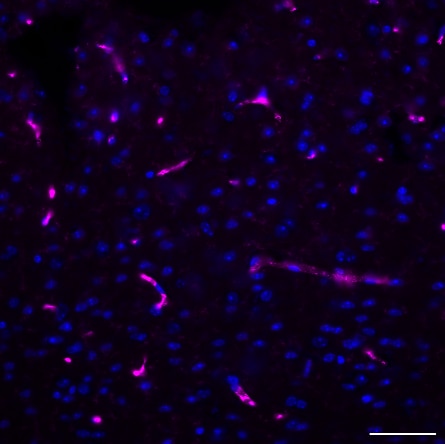 |
FH Guorong (Verified Customer) (03-22-2022) | Two bands at 30 and 60 kDa was detected
 |

